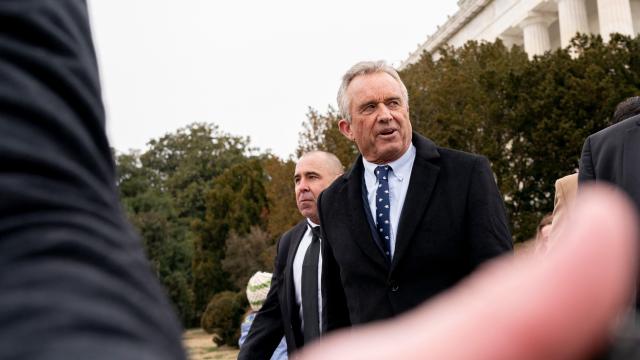One of the most prolific and notorious anti-vaxxer online communities no longer has a home on either Facebook or Instagram as Meta reportedly took down both of their accounts for spreading misinformation, the company confirmed.
The group called Children’s Health Defence, a community of vaccine conspiracists, told their supporters Wednesday that “without warning” Facebook and Instagram took down each of their separate pages. Screenshots of the suspensions showed they had violated the platforms’ “Community Standards on misinformation that could cause physical harm.” Specifically, it went against the company’s stance on covid misinformation. Facebook also has a stated ban on anti-vax disinformation, although in this case it was apparently for repeatedly promoting disinfo on the pandemic.
The group, which is headed by loud-mouthed anti-vaxxer Robert F. Kennedy Jr. (who had once came so close to a seat of actual power), further complained that they hadn’t posted anything for the past three weeks because of a previous 30-day suspension. CDF, which was once called “World Mercury Project” (relating to another long-debunked conspiracy about vaccines) said their followers numbered more than 500,000 on their accounts. Jr. went out of his way to say Facebook was acting as a “surrogate for the Federal government’s crusade to silence all criticism of draconian government policies.”
Not to mention, as much as Kennedy proclaims he hates the federal government, he has no qualms about taking feds’ money meant to help businesses hurt by the pandemic. Kennedy is one of the most active spreaders of misinformation, and was called one of 12 individuals most responsible for much of the falsities about vaccines spread online, according to disinformation researchers.
A Meta spokesperson told Gizmodo that both accounts were removed “for repeatedly violating our policies.” Meta uses a strike system to enforce moderation, and depending on the type of violation, it could take more or less strikes before a page gets suspended, or like CHD’s, fully removed.
Between selling books, videos, and overall dribble about the dangers of vaccines, Kennedy and the Children’s Defence Fund have struggled to fight against social media sites taking down their accounts. Google took down their YouTube page last year in a sweep of accounts spreading vaccine conspiracies. Kennedy himself saw his Instagram account taken down last year, though his Facebook page remains up and as active as ever. Facebook does have a stated policy about not striking users separate account pages for content they publish on other pages they run.
In the NPR interview from 2021, Kennedy said he has to post “unicorns and kitty cat pictures” to not be taken off Facebook. He does still advertise his website and newsletter on his page.
It’s unclear what the final straw was that caused Meta to drop the ban hammer, but Facebook has routinely failed to have much consistency about enforcing its disinformation policies. It’s been particularly bad for anti-vaxxer nonsense, according to Facebook’s own internal documents.
Anti-vaxxers often shove their heads down a deep, deep rabbit hole in order to justify their intense and unscientific vaccine scepticism. These range from beliefs that they are untested (that’s not true) to the rather obscene belief that vaccines contain “satanic” ingredients (they… uhhh… don’t).
But don’t try to have that argument with a person who calls themselves a “vaccine sceptic” or you’re in for a hell of a time. There’s still hope that vaccine sceptics are not as numerous as they once were online. Still, the most active remain prolific on any site that still lets them hold court. It seems the best way to shrink that influence is to limit the number of places they can access mass audiences.
